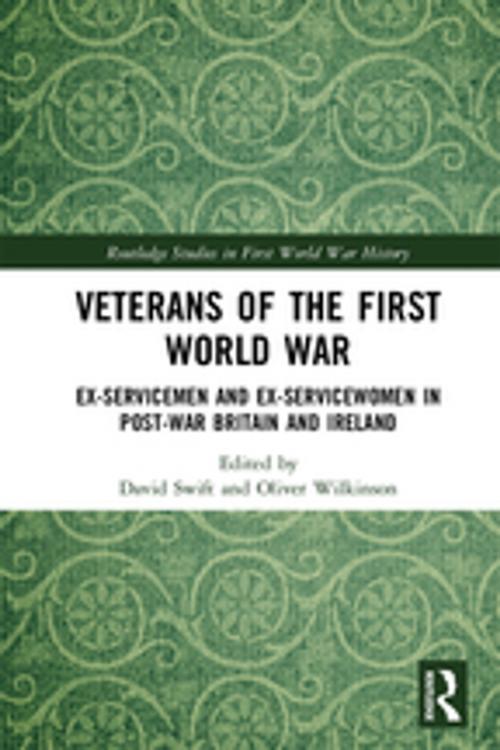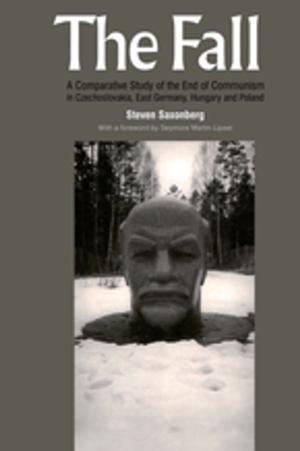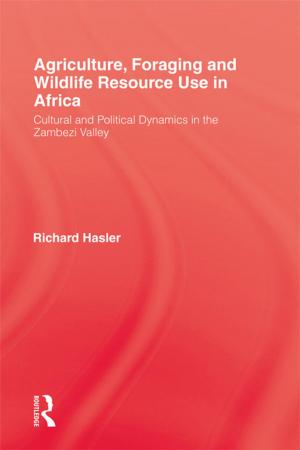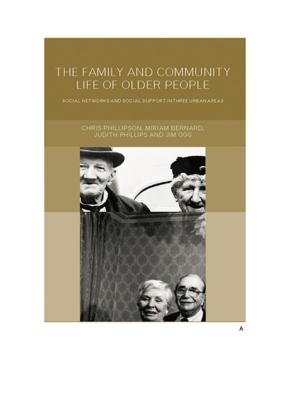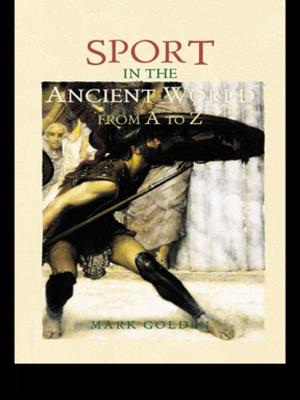Veterans of the First World War
Ex-Servicemen and Ex-Servicewomen in Post-War Britain and Ireland
Nonfiction, History, Military, World War I| Author: | ISBN: | 9780429614941 | |
| Publisher: | Taylor and Francis | Publication: | February 14, 2019 |
| Imprint: | Routledge | Language: | English |
| Author: | |
| ISBN: | 9780429614941 |
| Publisher: | Taylor and Francis |
| Publication: | February 14, 2019 |
| Imprint: | Routledge |
| Language: | English |
This volume synthesises the latest scholarship on First World War veterans in post-war Britain and Ireland, investigating the topic through its political, social and cultural dynamics. It examines the post-war experiences of those men and women who served and illuminates the nature of the post-war society for which service had been given. Complicating the homogenising tendency in existing scholarship it offers comparison of the experiences of veterans in different regions of Britain, including perspectives drawn from Ireland. Further nuance is offered by the assessment of the experiences of ex-servicewomen alongside those of ex-servicemen, such focus deeping understanding into the gendered specificities of post-war veteran activities and experiences. Moreover, case studies of specific cohorts of veterans are offered, including focus on disabled veterans and ex-prisoners of war.
In these regards the collection offers vital updates to existing scholarship while bringing important new departures and challenges to the current interpretive frameworks of veteran experiences in post-war Britain and Ireland.
This volume synthesises the latest scholarship on First World War veterans in post-war Britain and Ireland, investigating the topic through its political, social and cultural dynamics. It examines the post-war experiences of those men and women who served and illuminates the nature of the post-war society for which service had been given. Complicating the homogenising tendency in existing scholarship it offers comparison of the experiences of veterans in different regions of Britain, including perspectives drawn from Ireland. Further nuance is offered by the assessment of the experiences of ex-servicewomen alongside those of ex-servicemen, such focus deeping understanding into the gendered specificities of post-war veteran activities and experiences. Moreover, case studies of specific cohorts of veterans are offered, including focus on disabled veterans and ex-prisoners of war.
In these regards the collection offers vital updates to existing scholarship while bringing important new departures and challenges to the current interpretive frameworks of veteran experiences in post-war Britain and Ireland.
